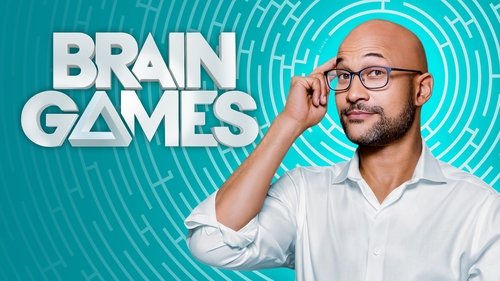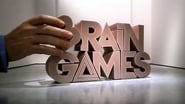Dalbert Pringle
Even though an average (human) adult brain weighs only 3 lbs. and barely generates more than 12 watts of power, it's certainly a mighty complex mass of "grey matter" that can readily store and retrieve a million bits of information and help an average person to perform all sorts of tasks, some surprisingly complicated, some not.The 2-disc set that I watched contained 3, 1-hour episodes from the best of TV's "Brain Games" in its first season of 2011.Set in Las Vegas, Nevada - This is a very slick production that plays "perception/memory" games with its audience in order to find out if the viewer is, indeed, really paying attention (which, in most cases, we aren't).For the most part - I found Brain Games to be actually quite entertaining - But, when trying to get its point across - This show did, sometimes, resort to a fair amount of superfluous "hocus-pocus" type stuff.
ivko
This show is an examination of how our brains work, with special emphasis on the cracks in what is its otherwise deeply impressive capabilities. The show is educational, but mostly it's fun to watch because you get to see how your own brain makes assumptions and mistakes under certain circumstances. These range from the fun, optical illusion types of errors to the downright spooky mistakes of reading errors or overconfidence in how common everyday technology works.To illustrate with an example from the show, without cheating and going online or looking at a physical example, draw a picture of a bicycle with wheels and a frame, then look at a real picture and compare your picture to reality. Even though the mechanism is simple and easily understood, there is a very decent chance that your drawing contains significant errors. This is because our brains don't like to feel that we don't understand the world we live in, so we "hand wave" away the concept of a bicycle, telling ourselves that we understand the concept even if we really don't. And as the show points out with numerous examples, this isn't some isolated or rare example, but is in fact much closer to the norm than we would be comfortable admitting.I don't know that I would agree with another reviewer that these types of examples should be used to screen job candidates because I think that the point of these examples is that whether or not you pass one particular test, you are almost certain to fail at least some of the tests. The problem isn't smart vs stupid or focused vs lazy, the problem is that our brains are imperfect computing devices. In fact, one could argue that by deciding that these errors don't apply to you by virtue of your intelligence or diligence you are making exactly the type of critical thinking error you are claiming to have overcome.Observing these cracks in our understanding argues for an extra layer of caution and occasionally pausing to examine our assumptions when making key decisions. Did I really understand the question a coworker asked me or did I make a quick assumption and leap to an incorrect conclusion? Is it really safe for me to answer this one quick phone call while driving or will the conversation require too much attention to do it safely?Not all of the topics on the show are equally applicable to our day to day lives, and the the show does occasionally rehash slight variations of themes it has previously covered, but all in all I think it's really fascinating to watch, and an excellent show in general to watch with your kids or significant other because there are plenty of opportunities for interactive group brain teasers or exercises to do with others.By the way, did you catch the extra word in the previous paragraph? Yes? Good on you! Now catch a few episodes and see how well you do on the other tests...
shannon-977-42041
I loved this show until I found out they lie. I just watched a segment about 3D where they brought out a plate of food, and a cheese plate and a glass of water with flowers in it. They then tried to convince you that the stuff they brought out was actually printed on paper (2D).. and that your brain had been "tricked". The problem is, the stuff they brought out WAS real, and through not so clever editing, they LIED to make the illusion seem legit. I know this because the water in the glass moved around slightly, impossible for "printed" water to do. There are all other giveaways that segment was rigged if you look closely.... shadows that are present on the real plate of food become much less pronounced on the "image" that is supposed to have tricked you.
Waldwick63
This show should be used by every HR department. My biggest problems with new employees can be revealed through some of these shows. Ex not noticing double words in common sayings or over compensating knowledge. If I could screen new hires on just these two skills it would save thousands of dollars. What I have always blamed on reading comprehension, may be the way people's brains work In my area of responsibility millions of dollars can be decided on detailed review of contract language, which can sometimes be compared to an illusionists slight of hand. It's very difficult these days to find candidates that can focus quickly on the text at hand. It's like no one has the focus necessary to perform this task. I have asked new employees to review hard copy text to find a specific string of text and after hours they cannot. This is the product of online education which renders old logical thought useless.


